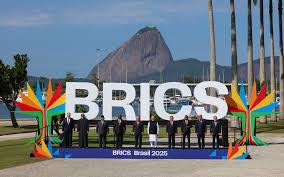Understanding BRICS: Formation, Significance, and Future Impact

Introduction to BRICS
BRICS is an acronym representing a group of five major emerging economies: Brazil, Russia, India, China, and South Africa. Established to promote peace, security, and development, BRICS has become a significant player in global economic governance. With a combined population of over 3 billion and significant influence over global affairs, understanding BRICS is crucial in today’s multipolar world.
The Formation of BRICS
The BRICS group was officially formed in 2009, originating from an initial meeting of the four countries: Brazil, Russia, India, and China. South Africa joined the group in 2010, expanding its reach into the African continent. BRICS was created to enhance cooperation among its members and to advocate for a more equitable international economic order.
Key Objectives and Principles
BRICS aims to promote mutual trade, investment, and partnerships in various sectors such as technology, infrastructure, and sustainable development. One of the core objectives is to reform international financial institutions to better represent the growing influence of its member countries. They also focus on addressing global challenges such as climate change, terrorism, and economic stability.
Recent Developments
In recent years, BRICS has gained more prominence on the world stage. The bloc held its 14th summit in 2022 where leaders discussed issues such as the Ukraine crisis, energy security, and the global economic recovery post-COVID-19. With increasing global uncertainty, BRICS is also looking to expand its membership, with countries like Argentina and Iran expressing interest in joining, potentially increasing its influence further.
The Future of BRICS
Looking ahead, BRICS is positioned to play a crucial role in reshaping global economic frameworks. With ongoing discussions around creating a BRICS cryptocurrency and promoting trade in local currencies, the bloc aims to reduce dependency on Western financial systems. As emerging powers strive to gain a stronger voice in international affairs, the relevance of BRICS is expected to grow, ultimately influencing policies and practices on a global scale.
Conclusion
BRICS represents a vital collaboration among emerging economies with significant potential for driving change in the global order. As the dynamics of international relations evolve, understanding BRICS is essential not only for policymakers and economists but also for citizens worldwide. By keeping an eye on this bloc, observers can better comprehend shifts in economic and geopolitical landscapes that may affect global stability and growth.









